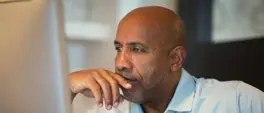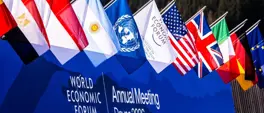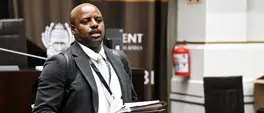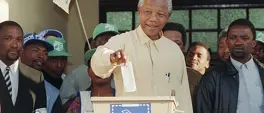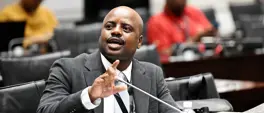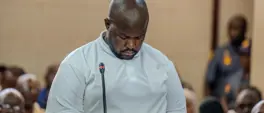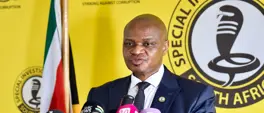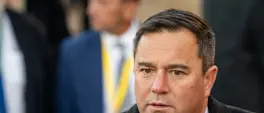MONDE NDLOVU: Economic freedom post-1994 needs to become more tangible
Monde Ndlovu
27 April 2023 | 10:00From averting a possible civil war, especially after the death of Chris Hani, to negotiating a new political settlement, one aspect SA did not include in its birth of democracy was deep economic discussions, writes Monde Ndlovu.
In reflecting on economic freedom, Lot Ndlovu said the following: “The new economic dispensation should match the aspiration for economic freedom and the fulfillment of the highest ideals of our democracy.”
This quote has many gems in it. In actual fact, it is like an onion that needs multiple layers to be peeled off. A new political era is naturally accompanied by a new economic dispensation, which should match the aspirations of the people, and ideally leads to the fulfillment of the highest ideals of our young democracy.
This new economic dispensation, plus economic freedom, equal democratic ideals. In other words, if economic freedom is not achieved in line with the economic order, democracy will fail in South Africa.
The new political dispensation which we now enjoy was ushered in through the most difficult times in our history.
From averting a possible civil war, especially after the death of Chris Hani, to negotiating a new political settlement, one aspect it did not include was deep economic discussions.
Many South Africans today believed that the moment of 1994 would usher in a completely different economic order – one where their quality of life would improve and outgrow life pre-1994.
In this case, the new political era was embraced with much excitement and heightened expectation that leaders in both the political and economic space would be driven by new ideals, underpinned by integrity and ubuntu.
Lot Ndlovu often highlighted that an opportunity was missed by leaders immediately after 1994 to drive transformation with the same vigour seen in the political arena, saying there was a lack of momentum in the economic space.
He often lamented the missed opportunity, and further stated how this moment confused both black people and white people.
Firstly, black people became confused and started to scramble for opportunities, and instead of spreading opportunities; it was all for personal gain and just a few close associates.
White people on the other hand thought that building a school or a clinic reflected what transformation was really about. Both groups missed what Nelson Mandela truly dreamed of, and even today, the country’s race relations are deepening.
Many calls have been made in the past 30 years or so around the need to focus on the economy and its structure.
The current conversations organised by the government, business, and other interested parties in society do not adequately deal with the economic question, or rather, economic freedom.
The JSE, as the hub and centre of the economy, has not been able to create sustainable and new black capital, but those who previously held and controlled the productive assets of the economy have been able to create more wealth post-1994.
Even with Black Economic Empowerment, many white people have become wealthier in the process.
Pre-1994, the economy was squeezed by sanctions and disinvestments, with added pressure on the ground from the people. Post-1994, the economy opened up, and those who had capital had a great advantage to build more wealth.
How have whites become wealthier through B-BBEE?
When ownership deals are structured, the lawyers, advisors, owners, bankers, and corporate financiers have been all white, with minority stakes negotiated by black people.
Then a “lock-in period” for black shareholders would begin, usually over 10 to 15 years, and they do not benefit immediately from the transaction. And even if they receive dividends, they need to pay back the money they borrowed to purchase the shares in the first place.
If they default and are unable to pay back the borrowed money, some clauses state that the shares should return to the original shareholders. And these companies benefit immediately - they do not have a lock-in period before they benefit, their B-BBEE credentials change immediately, and doing business with the State can happen.
Therefore, B-BBEE as a framework needs to be reviewed, especially the priority elements, and ownership in particular. The financing model for B-BBEE transactions needs urgent attention, along with some of the principles that underpin the ownership elements in the framework.
The economic order that we run in South Africa is tied to the global economic order of capitalism. If South Africa continues to not think independently as a country worthy of thinking, the aspirations of economic freedom will not be reached.
We need to insist continuously that we are free to think for ourselves and make decisions that are in the best interest of the country and its progress.
Our country needs to be driven by equity to produce a world-class economy, and we cannot become world-class if we do not unleash the potential of black people in particular.
Our manufacturing sector, which represents industrialisation, does not even contribute to 20% of our GDP. This is not a good picture. Our economy is driven by finance and services, which are tertiary activities. And in this regard, we are building a consumer-driven economy, not a producing one.
We remain the most unequal society in the world, with one of the highest unemployment rates. More than half of the population lives in poverty, and only around 6%-7% of the population have degrees.
Therefore, we need a new economic order that is underpinned by equity, justice, and fairness. We need a new economic settlement, not just a social compact. The economy in South Africa needs to be restructured to cater to its developmental needs and aligned with the aspirations of economic freedom.
We need inequality, poverty, and unemployment targeting in the country, and for decisions, both in government and in business to decrease inequality, poverty, and unemployment.
Therefore, an urgent economic discussion needs to take place, where all stakeholders will agree on an economic compact or a new economic pathway.
So, what then are the building blocks of true freedom?
It is the freedom to be, the freedom to choose, the freedom to make mistakes, and the freedom to begin again. The freedom to embrace, and the freedom to discard. The freedom to care, the freedom to be cold, the freedom to follow, and the freedom to lead.
The freedom to lead with integrity and passion, and the freedom to be economically viable, inspired by a love for the people and love for their progress.
Monde Ndlovu is a consultant for African Leadership Development.
Get the whole picture 💡
Take a look at the topic timeline for all related articles.
